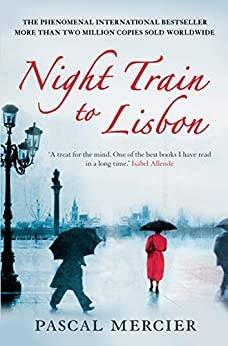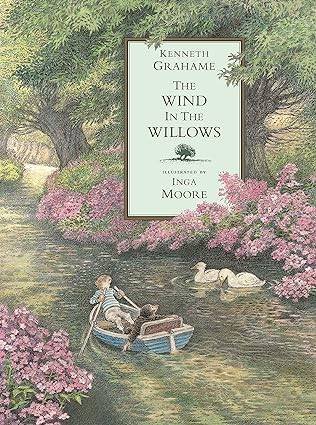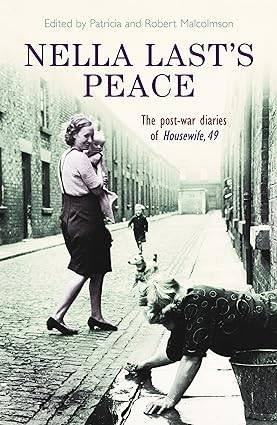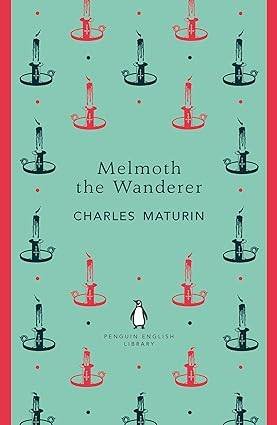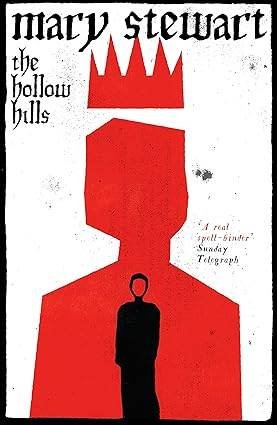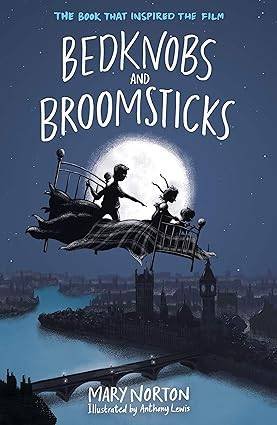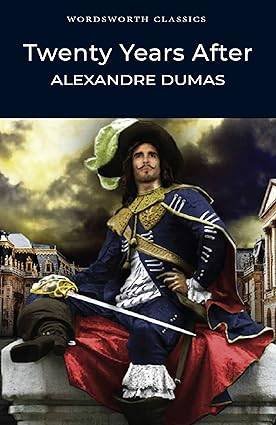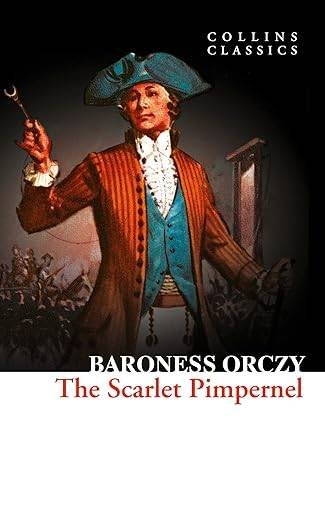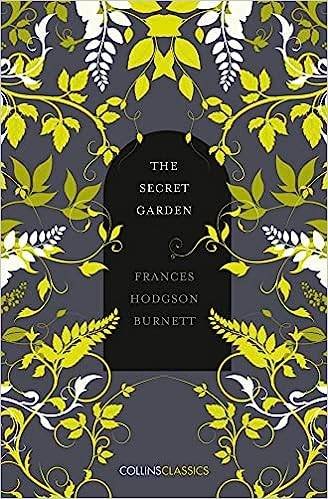Home » Book Reviews » Diane Setterfield » Once Upon A River by Diane Setterfield
Possible spoilers ahead
I’m looking forward to reading this book, as it was highly recommended to me as being full of beautiful descriptions and I like the sound of it being an historical mystery. I also love the cover with words curving down the river.
There were so many stories running through the book, so I ended up finding it easier to just take each story in turn and summarise the conclusions and my thoughts regarding it. Some of the stories were quite tragic and all of them ended up linked, so it reminded me of a Dickens’ book with how involved the stories were and how they all linked together. There was so much happening all the way through, so much information given which raised more and more questions and made me speculate more and more, as can be seen with all my speculating below! And I kept wondering throughout the book if there were going to be real-life answers to things or if there would instead be a supernatural magical answer.
One of the main stories was the identity of a mystery child who was found drowned and apparently dead and no-one knew who she belonged to or where she came from, and she then surprised everyone by coming back to life after it seemed she was dead! The Vaughans claimed her as their missing child Amelia. Robin stated she could be his child Alice, also making her Robert’s granddaughter. And Lily kept thinking she was her sister Ann (and I wondered if it was relevant that all three children’s names began with the letter A, I couldn’t think of any particular significance to this but it did seem strange their names all began with the letter A).
Another story was Helena and Anthony Vaughan’s tragic history with their child Amelia having been stolen and them not knowing what happened to her, and all through the book I was really intrigued about what had happened to Amelia. I did feel that the mystery child wasn’t Amelia, and was then worried how this realisation would destroy Helena. And when the mystery child was pronounced as not being Amelia, I really felt for poor Helena to in effect lose ‘Amelia’ all over again, my heart was bleeding for her. Although it was also worrying me that the Vaughans were no longer searching for Amelia as they believed she had returned to them, so then when they knew that the mystery child wasn’t Amelia I was heartened that they could go back to looking for the real Amelia as I was hating to think of her scared somewhere. And it was so sad with Anthony telling Amelia’s story to Mrs Constantine and the memory he was then able to piece together of Amelia being dead, very very sad. I had to re-read it to check I’d understood it right as I couldn’t understand at first why he’d not mentioned this before to anyone or even to himself, but I guess it was just too traumatic for him to deal with so he squashed it down. It was awful to think of him looking at his dead child and the heartbreak he had carried, although not knowing quite what he carried. It was so cleverly and sensitively written. And I kept wondering and wondering who had returned Amelia’s dead body to him, I puzzled over why the kidnappers (if she had been kidnapped) would do this and what they would gain by it as they were surely only bringing risk to themselves. I began to wonder if Victor had found Amelia dead (though not being involved in the kidnapping) and saw a way to make money by demanding a ransom for returning her. I was frustrated though with Anthony not saying anything at the time about Amelia being dead and letting Amelia’s body float away, which meant that no-one had investigated what had happened to her and no-one had been punished. And of course I kept wondering and worrying what exactly had happened to Amelia, it was awful to think of her suffering. I began to wonder if she wasn’t kidnapped at all, that perhaps there was an accident caused by the nursery-maid Ruby (whose story of going for a walk seemed odd), or that Ruby had just found Amelia dead in her sleep and then panicked and thought she’d be blamed so tried to then dispose of Amelia’s body. We then learnt that Ruby had left the house that night to have her fortune told by Maud the pig, and it seemed that Victor had stolen Maud so then I wondered if he had deliberately enticed Ruby away so he could steal Amelia.
Another story was Robert Armstrong’s life with his wife Bess, who was the daughter of the farmer who Robert had bought the farm from. I think Robert is up there with some of my favourite characters in literature, I absolutely adored him, he was so admirable and honourable, always the outsider in that time and in that community due to him being black but so patient with the people he met and their initial wary reaction to him being a tall black man. And I loved how caring he was with his animals and always carrying treats in his pockets for those animals he met. I was getting anxious for his pig Maud when she was stolen, and hoped she would be returned to him (Maud also being quite an amazing pig who was able to ‘solve’ people’s problems and counsel them and provide comfort). And I was desperate for the cruelly treated butcher’s boy, Ben, to go to Robert for sanctuary, I was quite worried about him when he ran away from his horrible father and didn’t turn up at Robert’s where he was heading to. And wondering about the identity of the mystery child greatly upset Robert, he was keen to have the child’s identity known for sure, not in order to keep the child himself but to selflessly ensure the Vaughans could then relax and enjoy having Amelia back, or if it was his grandchild Alice then she could belong with them and they would provide a lovely life for her.
Another story was Robert’s horrible stepson Robin, aka Mr Fisher, and his relationship with Alice’s mother. Robin abandoned Alice’s mother resulting in her turning to prostitution and being raped by a client, and then apparently drowning Alice and killing herself, although Robin said she left him for another man. I doubted there was another man involved, I thought it was all him being horrible and abandoning her. I couldn’t fathom how he could be so horrible, when he’d been brought up by lovely Robert. I kept puzzling why Robin kept going back to look at the mystery child at the Vaughan’s house, I wondered if he was plotting a money-making scheme, or if he was genuinely regretful about how he had treated Alice and her mother and so if the mystery child was Alice then he saw a way to put right this wrong. And the fairground scene with Robin and Mrs Eavis was very dramatic! It seemed to have all been orchestrated by Robin, with Mrs Eavis being there, but I was again puzzling quite why, whether it was some plan of his to get money, or whether it was him trying to get into Robert’s favour by giving Robert a grandchild. I kept hoping throughout the book that Robin got his come-uppance.
Another story was Lily and what had happened to her in her life and how she affected the current events. I was curious at the start why she allowed Victor to visit her and who he was to her, and we found out that Victor was Lily’s stepbrother, a horrible abusive man, and it was so awful to think of how he made her suffer for all those decades and how broken down and defeated she was, and also how tragic that she had obviously learnt this behaviour around men from her mother and the same sad patterns of abuse were repeated. She was a very odd character, and there was also the mystery about her sister Ann drowning and if Lily had been involved in this. I had begun to wonder if Ann was Victor and Lily’s child, with Lily referring to Ann as her sister which would fit if she was the product of her stepbrother (so kind of Lily’s sister) and that poor Lily was so confused by all that Victor had done to her in creating Ann that she wasn’t able to see Ann as her daughter, and I wondered then if Victor had disposed of Ann and drowned her as he saw her as an inconvenience. But we are then told that poor Lily had drowned Ann, at Victor’s instigation and without knowing it was Ann, and this also made me wonder if Victor’s alarm at whether the mystery child was talking was because he believed the mystery child was Ann who had survived somehow and could then tell on him. But then we learnt that Lily didn’t drown Ann, which I was very thankful for, it was actually a dead piglet in the blanket which Lily thought was Ann and Victor just played with Lily’s mind by making her think she had drowned Ann. Actually Ann had been found far from home and was ill and died, and tragically, Lily had run away from her mother due to believing that she had hurt Ann, so the mother then lost both daughters. I did wonder if the stepfather had enticed Ann away, presuming she would be lost and perhaps never found again, and I also began to wonder if Ben’s father (the butcher) was actually Lily’s stepfather, but we learnt that her stepfather had been hanged for other crimes so he wasn’t the butcher. And I was intrigued by Lily’s husband Mr White (who was also cruel and beat her, but who Lily saw as an escape from Victor) being found dead, I wondered if he had been killed by Victor in jealousy. Poor Lily, such a tragic life, but I was comforted by the thought that Maud the pig was with Lily and she was turning to Maud for help and benefitting from her skills, and I was thankful when Maud was found and that Robert gave one of her piglets to Lily.
Another story was Victor and his history and his causing harm wherever he went. I was intrigued as to why he was so interested in the stealing of Amelia and whether the mystery child living with the Vaughans was talking, I puzzled over how he could have been involved in the stealing of Amelia, or whether he wasn’t involved but was just using the situation as an opportunity to make money. And Victor was the fortune-teller at the fairground trying to blackmail Anthony, so again I was puzzled how much he was actually involved with Amelia’s disappearance. And I puzzled over the significance to Robert of Victor’s surname of Nash, I had begun to wonder if he was the man who worked on the farm who raped Bess. Then Victor was chased by Daunt and Anthony and Robert and the others, as they believed he had taken and killed Amelia, and he was then presumed drowned while trying to escape them, but I began to wonder if Victor wasn’t actually dead. Like with Robin, I kept hoping throughout the book that Victor would get his come-uppance.
Another story involved Rita and Mr Daunt, both very interesting characters, and I was wondering if they’d end up together as I really liked them together.
And then there were the stories that the people in The Swan pub told, including ones about Quietley the riverman either saving souls or sending them on their way to the other side. All this was very intriguing, and I puzzled over whether it was relevant or just another example of story-telling.
And then the ending, phew, so much happened so quickly and dramatically, it was quite exhausting! It was a year since the mystery child had appeared and was winter solstice time and the river had flooded (the river had been so intricately woven throughout the story that I felt this flooding demonstrated how powerful it was, the power it had over people and the environment, and demonstrated that it can’t be controlled). Robin turned up at Robert’s home demanding money and saying that he will be killed if he doesn’t get money, but Bess refused to give him money so Robin pulled a knife on his sister before running off. Robert went after him, and then Robin told Robert that he knew Robert wasn’t his father and he believed that Lord Embury was his father due to a letter he had found at home, and he also believed that Robert and Bess had been keeping the money from Lord Embury intended for him which was mentioned in the letter (so this was why he was so bitter and angry towards them, which I had struggled to understand as they were always so lovely to him). Victor then arrived and he told Robin that he was his father (eeek, so he was the man who raped Bess!), that he had trained Robin in his criminal ways and they had earned money together which allowed Robin to buy his nice house that Victor now owned due to lending money to Robin. Victor told Robert that he planted the idea onto Robin of stealing Amelia and getting money by ransom (oh no, my heart sank at this information!), that Robin then planned it all by enticing Ruby away with the promise of the fortune-telling pig Maud, who he had previously helped Victor steal from Robert. Victor said he had the chloroformed Amelia in a sack and threw her to Robin in the boat, but Robin dropped her, which cracked her head on the side of the boat and she then fell in the river and was lost for ten minutes (oh no, my heart sank again at this information, although I was comforted by the thought that at least Amelia didn’t suffer). They decided to still claim the ransom money, and gave Amelia’s body to Anthony (so they knew that Anthony knew that Amelia was dead!). Robin also said he knew the mystery child wasn’t Alice but he had planned to make more money out of the Vaughans by selling the mystery child to them and his plan was scuppered by Bess giving her to the Vaughans. Robin then stabbed Victor, and they both fell into the flood water and were collected by Quietley the riverman, and Robert also saw the mystery child in the boat with Quietley. Helena then went into labour and Daunt took Helena to Rita at The Swan where she was helping with the landlord Joe who was dying. A baby boy was born to Helena, whilst Joe died. Joe’s son Jonathan said he saw Quietley come for Joe’s body while he was alone watching, and Jonathan also saw the mystery child in the boat who said to tell them that her father had come to fetch her. Lily escaped from her flooded house, and she also rescued Maud’s half-drowned piglet, and she turned up at The Swan. Ben the butcher’s boy turned up at Robert’s with Alice! He explained that when he ran away he had dropped from a bridge onto a barge passing on the river below and had heard the bargeman say that Alice had landed in his barge in the same way, so Ben found out that the bargeman had taken Alice to an orphanage and Ben found this orphanage and gained admittance and stayed there looking for a chance to run away with Alice and then head to Robert’s. Ben and Alice both then lived with Robert and Bess. Rita and Daunt both missed the mystery child desperately, so they decided to be together and to have a child together. After the flood waters retreated, Amelia’s skeleton was revealed and the Vaughans buried her and grieved and were counselled by Mrs Constantine and moved to New Zealand with their son. Lily moved into the parsonage with her puppy. Some believed the story that the mystery child belonged to the river gypsies and had fallen overboard but the gypsies learnt she had been found and was living safely with a rich family so they had just waited until they were up the river again a year later and then took her back. Others believed the story that she was Quietley’s child and had gradually replaced him and now looked after people who came to harm on the river.
Wow, what a fantastic storyteller Diane Setterfield is! I liked the way she concluded everything, the bad guys did get their come-uppance, though I was shocked at Robin’s involvement with Amelia’s kidnapping and death, I hadn’t seen that coming. I loved that Ben and Alice got their happy ending with Robert and Bess, and I hadn’t guessed that story either as I had thought Alice was dead. I liked that Helena and Anthony gained closure over Amelia when the flood waters receded and her skeleton was revealed. And that Rita and Daunt got their happy ending together and happily conceived a child. And Lily had a nice safe conclusion too with moving in with the parson, although really what I was hoping for with Lily was that she went back to her mother as I really felt for her poor mother and how she must have suffered with losing Ann as she died of fever and losing Lily as she ran away feeling guilty, and losing her husband through him being hanged (although that was probably a blessing to her as he was evil and I’m sure led her a miserable life while they were married and she seemed scared of him even before they got married), so I’d have liked Lily to have gone back to live with her and them both comfort and cherish each other.
I would still like to know if Lily’s stepfather took Ann away and abandoned her. And I’d like to know if Victor killed Lily’s husband, and why Victor wanted to know if the mystery child was talking as he knew the mystery child wasn’t Amelia (as he’d seen her be killed)? Or perhaps he thought there was some slight chance that she had survived?
And I am torn with quite what the mystery child was, I can’t decide if I want to go with the magical explanation of Quietley and his child, or the logical explanation of her being a river gypsy child. I think I’m not really settling on either explanation really, as I prefer to think of her as a kind of magical fateful being who was sent to help people resolve things and to bring people together and to show them their paths and to help them, as she helped the Vaughans face things and heal and to bring love into their lives again on a new path with another child, she brought about the resolution of Robin’s and Victor’s ends (though whilst still reading the book I had hoped she was going to help Robin see the error of his ways and bring him back to Robert and Bess), she helped Robert and Bess by giving them another chance to raise a ‘Robin’ with his child Alice, she helped Lily to be able to forgive herself, and she brought Rita and Daunt together and allayed their fears about the future so they could realise they wanted to have a child together. And then the mystery child moves on again, onto somewhere else where her healing help is needed.
The River Thames was almost like a magical character and wove its way through the story, and Setterfield’s descriptions of the river could equally be used (as she probably intended) to describe a story, such as ‘…en route the river does not seem particularly intent on reaching its destination…its changes of direction are frequently teasing…it has other capricious tricks up its sleeve, at places it slows to drift lazily in wide pools before recovering its urgency and speeding on again…it splits into twin streams to maroon a lengthy piece of territory, then regathers its waters into a single channel…the beginning of the Thames is not the beginning, or rather it is only to us that it seems like a beginning…is more about motion than beginnings…better study where it goes than where it comes from’, these passages could easily be read as describing a great story too, I love how clever this is! She also describes the river/stories in other beautiful ways and with lovely imagery, such as ‘They sat on the bank. It was better to tell such stories close to the river than in a drawing room. Words accumulate indoors, trapped by walls and ceilings. The weight of what has been said can lie heavily on what might yet be said and suffocate it. By the river, the air carries the story on a journey, one sentence drifts away and makes room for the next’, and ‘…the river was too vast a thing to be contained in a book. Majestic, powerful, unknowable, it lends itself tolerantly to the doings of men until it doesn’t, and then anything can happen’, and ‘…the water…seeming in its flashes of reflected light to contain fragments of the past and of the future. It has meant so many things to so many people over the years’, it’s just so beautifully written, her writing is almost magical really.
I also loved how photography was used to capture different unseen things in the characters and perhaps reveal what was not already known about them, or known by them about themselves. Photography seemed like another almost magical thing, like the river. And the significance of having to stand still and gather yourself while waiting for the photograph to be taken, to stop and pause and think, was very powerful too.
Pigs also seemed to play a big part in this book, not only Maud and how she ‘solves’ people’s problems and counsels them and provides comfort, but also how (I thought) a person’s character could be demonstrated by how they treated pigs, eg Robert treated pigs very well and he was a good person, but Lily’s stepfather treated pigs carelessly and he was a bad person, and Victor used a pig in order to trick Lily and he was a bad person, and Robin used a pig in order to trick Ruby and he was a bad person.
I think this is an enchanting beautiful book and Diane Setterfield is a wonderful old-fashioned quality storyteller, but it is also gripping to read and I struggled to put it down which surprised me as I hadn’t suspected there would be this much drama and mystery in the book. There was more sadness in this book too than I thought there’d be at the start, and some of the injustice and cruelty to some of the characters tugged at my heartstrings. But what stood out for me most about the book was the author’s writing, as it is so descriptive and beautiful, romantic and a bit fairytale-like and magical, and quite old-fashioned and charming, I didn’t want the book to end, her writing just seemed to cast a spell on me and I felt like I was in another world and didn’t want to return to reality. I feel quite bereft now that I’ve finished the book! I loved her writing style right from the start of the book, with her obvious love for storytelling being demonstrated with all the history and the storytelling of the characters in The Swan pub, and also her love for the River Thames being demonstrated with her describing it like it’s a magical character. She is an amazing storyteller! I like the way she talked to the reader too, such as ‘That photograph, do you remember?’, and ‘That’s what I was meaning to come to…’. And then there’s her haunting memorable beautiful phrase of ‘And now, dear reader, the story is over. It is time for you to cross the bridge once more and return to the world you came from’, oooh, that’s a line that will stay with me, as it’s just how I feel when I reach the end of a book, that I have to then reluctantly return to the real world when I put the book down.
I think this is one of the best books I’ve read in ages, I thought it was just wonderful, I really enjoyed reading it! I can’t stop recommending it to people and I can’t wait to read her other books. I see she has written The Thirteenth Tale, which is described as ‘a haunting tale of secrets and stories’ so that sounds like another great read, also Bellman & Black which is described as ‘a haunting Victorian ghost story’ so that sounds good too, but I can’t wait for her to write more! And I was reminded many times when reading this book of Charles Dickens’ books, as it was written in such a descriptive way (just like his books), but also because many of the characters ended up being related or connected, just as Dickens excels at! I was particularly thinking of Great Expectations, which is one of my favourites and the first time I read it I was so shocked at the twists of who was related to who (he’s such an amazing storyteller!), so I am tempted to pick that up and re-read it, to ‘cross the bridge once more’ but returning into the world of stories and leaving the real world, my favourite way to cross the bridge!





